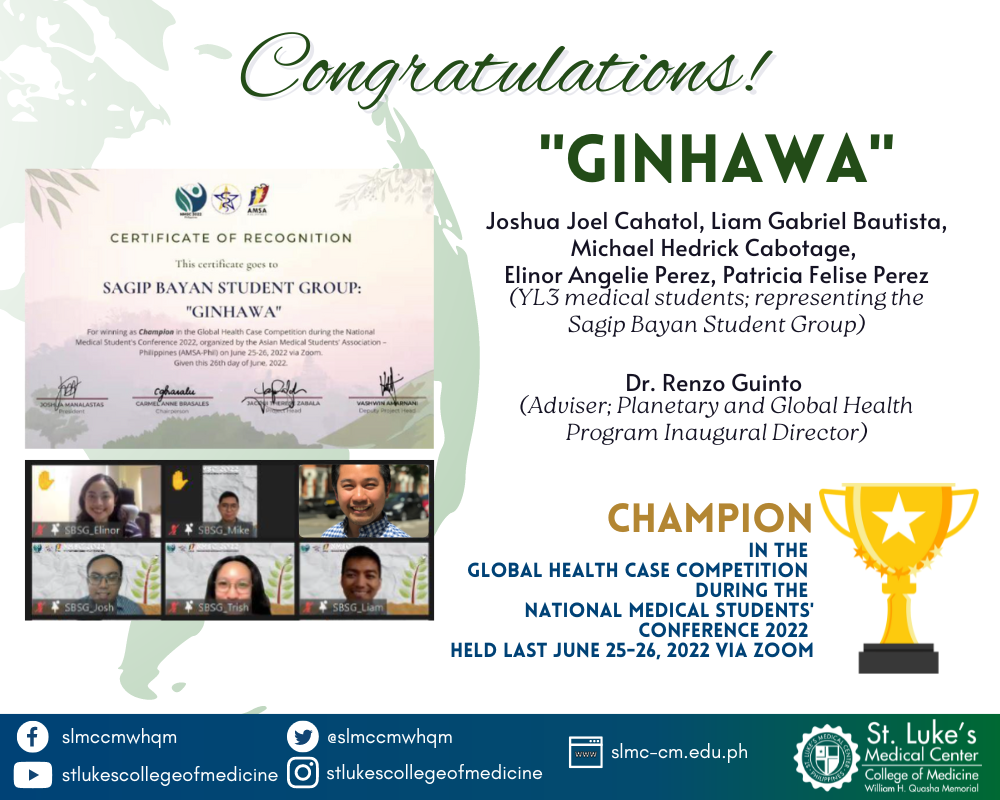“Ginhawa” wins first place in the AMSA Philippines Global Health Case Competition
| August 12, 2022

The project of a group of medical students (representing the Sagip Bayan Student Group) entitled “Ginhawa” won as Champion in the Global Health Case Competition during the National Medical Student’s Conference 2022 held last June 25-26, 2022 via Zoom.
The Global Health Case Competition is the first-ever health case competition added to the National Medical Student Conference Academic Competition. This is a new platform for medical students across the Philippines to exercise their current skillset and critical thinking in planning innovative approaches to address pressing health care problems.
This feat is a milestone for the college as it continues to become a leading center of planetary and global health education, research, and translation in the Philippines. More importantly, more medical students especially Lukans are interested in pursuing a career in this field. This is made possible through the college’s Planetary and Global Health Program with the leadership of its inaugural director (who also served as the group’s adviser), Dr. Renzo Guinto.
Congratulations to the group – Joshua Joel Cahatol, Liam Gabriel Bautista, Michael Hedrick Cabotage, Elinor Angelie Perez, Patricia Felise Perez (YL3 medical students), and their adviser – Dr. Renzo Guinto!
Your Lukan family is proud of you all!
*******************************************************
About the “Ginhawa” Project:
The inaccessibility of healthcare continues to be a neglected matter of grave public health concern. This complex and interrelated web of societal and structural barriers create negative experiences for PWDs, and more so in the context of the lack of effective communication between PWDs and their healthcare providers, which sets the non-inclusive tone for their patient-doctor relationship. Additional needs are not met or thought of, and special considerations are not even considered, making for an able-bodied approach to the patient, rendering them to feel isolated in their struggle. Undoubtedly, these factors impact the safety and quality of their care, and subsequently, their future health-seeking behavior.
Ginhawa aims to empower PWDs to communicate their special needs to their healthcare providers and community without discrimination through a data information system in the form of a mobile app. Access to healthcare should be inclusive and not be fraught with assumptions, as each PWD’s healthcare needs are unique.
